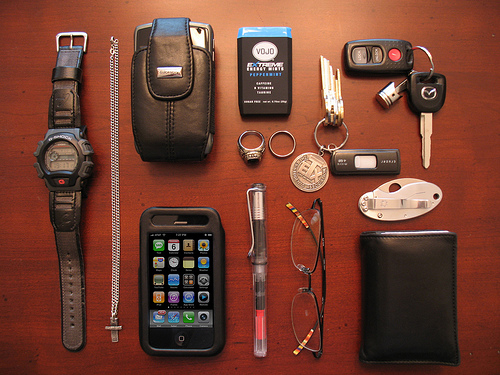
It only took about ten Christmases before I realized how quickly the new-toy feeling wears off. I knew by the time New Year’s came around, I would lose that feeling I looked forward to all year — getting up to a dazzling world of new stuff.
Then one Christmas Day I felt that same predictable boredom, the same fading of abundance, creep in by dinnertime. I had eaten more chocolate than could actually be enjoyable, and played with everything once.
I felt like I had definitely lost something substantial since that giddy first hour of the day. Obviously I didn’t own any less by that time (not counting chocolate), but it absolutely felt like I did.
Of course, no matter how I felt about my possessions at different times of day, I was always rich and rarely realized it.
The same is true for me today, probably you too. Average income across the world is about $7000 per year. But that’s just a mathematical mean. The vast majority of people make far less than that. Only about twenty percent of the world’s population lives in countries with an average income that high.
So no matter what class you are in your society, if you’re sitting in front of a computer with some blog-reading time on your hands, you probably outclass (financially anyway) a sizeable majority of people alive today, and certainly almost all of the people who are no longer alive.
But that’s just money. Wealth includes power and privilege too, and not just because you can buy more of those things. It’s reasonable to say that someone with a thousand dollars is less wealthy than someone with a thousand dollars and access to political connections, say. Ability, knowledge, and privilege all contribute to wealth.
You’re probably not doing too poorly on that front either. You’re unlikely to be reading this if you live in North Korea. All sorts of people read this blog, but statistically you probably have the right to vote, the right to protest, the right to say what you like, the right to travel, the right to practice your spiritual tradition, the means to contact your political representatives, the means to practice your chosen art, and the means to self-publish your thoughts. Extraordinary and exclusive privileges, if you have any of them. Read More









 I'm David, and Raptitude is a blog about getting better at being human -- things we can do to improve our lives today.
I'm David, and Raptitude is a blog about getting better at being human -- things we can do to improve our lives today.
It all pretty the opposite if you're not in the US :) Since 2022 I've changed 3 countries and I'm planning to emigrate to the fourth one. I've had so much novelty and so many things to adapt to. However, time had never run so fast for me as in 2022...